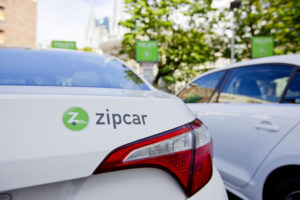The car brand Lynk & Co is owned by the multinational manufacturer Geely, and at the April 2017 Shanghai Motor Show debuted their 01 SUV model.
There’s plenty to admire in this car – it’s packed full of tech such as a 10-inch central touchscreen, and it’s permanently connected to the internet. When released, it was hailed as the ‘world’s most connected car’.
Even so, we would wouldn’t normally be that interested in the release of a Chinese car.
So how does this relate to car keys?
Lynk & Co’s cars don’t use physical locks – they’re accessed digitally.
The company has worked with Ericsson on the technology side of things, using their Connected Vehicle Cloud service and expertise in the Internet of Things. This has resulted in a cool demonstration of the world’s first built-in share technology.
By using the Lynk & Co app, owners can control and monitor their car just by using their smartphone, as well as giving other people the digital car keys. The actual unlocking technology works through radio frequency identification.

This functionality has been designed with sharing in mind. They’ve targeted the growing sharing economy and will be releasing this vehicle with shareable locks, which means that the moment you by one, you’ll be able to share access to it.
Alain Visser, Chairman of Lynk & Co, has outlined the reasoning behind this digital car key: ‘The digital key solution was born out of an innovative co-creation exercise and through cloud technology we are able to offer a new service and functionality for our customers’.
So, it looks like digital key technology is proving integral to the growth of car sharing.
Although we currently have car sharing services like Zipcar in the UK, the use of shareable lock tech is a step further and one we’re excited to keep an eye on.
The 01 SUV is due to be released in China in 2017, so it’s a way off before we see this sort of car key technology become widespread. It’ll be interesting to see if Lynk & Co’s predictions are right – will getting rid of physical car keys and using digital keys lead to a bigger emphasis on new car ownership models like car sharing?
